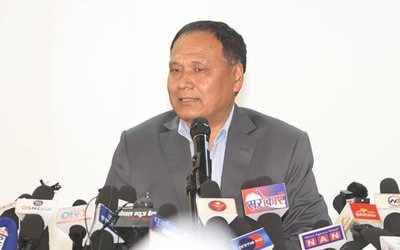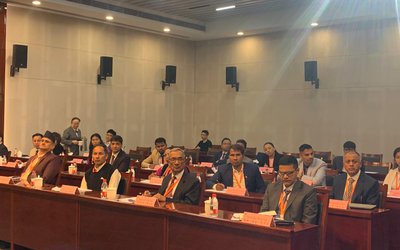In an opinion published in Spotlight Magazine, in June 2013(“Once Upon a Time”), I had dared contest the erroneous decision by leaders to bring in a completely new structure of governance as designed, drafted and dotted in the haunts, mainly because it was drawn and implemented by totally frustrating the process of change (in substance, form and method). Therein, I had also dared to predict the hurdles that could ensue in implementing the decision and, at some point that everybody would come to regret it.
That prediction was the sequel to an observation made two years earlier in Spotlight Magazine, in February 2011(“Managing Equal Right to Development”) which flagged that “in any form of government, the nexus between equal right to develop (meaning without discrimination) and political governance (meaning without exclusion) had to be obvious”, and that it provided “a way of guaranteeing a much-needed holistic development”.
The time is ripe, it appears, for that 2013 prediction to be considered somehow merited and no less premonitory. Indeed, years have gone by, and the change as promised has failed to firmly establish. Problems looming large in those days reverberate in all ages, all directions, and all sectors. Certainly, the blame games also continue proliferating in all directions, including against personages that existed more than three centuries ago, of course, a tactic easily available to camouflage failures and save face. However, the efforts targeted by such tactical reactions may simply be futile, as the fault does not actually lie only in contradicting political and ideological beliefs, individual thinking’s, and traditional institutions. It mainly lies in the acts that were ultra vires and were carried with ill-intentioned and willful negligence of the conventional process.
“When science stops, philosophy pauses, faith begins” is a popular adage. The adage, ingrained in the minds of all those who think (hence those who exist, to recall Descartes), resonates well in the current time, where a faith-based alternative proposal is gaining momentum. Logically, therefore, those who opt to follow a path, without leaving the country, that they believe can ultimately save them, cannot be alienated for merely enjoying their inherent and fundamental rights to think and to make a choice. They cannot be chastised for seeking what they see as a guarantee for their personal and social security and economic opportunity, and the only possibility for them to upgrade livelihood - something the issuers of the multiple ideological promissory notes in the past could not honor. Rather, their choice should be revered amid the dreadful wave of emigration causing ancestral lands to be barren, societies to be without a youth force, basic civility to be bereft of culture, and senior lineage forced to forego their descendants forever.
Clearly, the science of politics has stopped, as the method of calculation based on it has been wrecked due to multiple horizontal as well as vertical hybridization of ideologies and affiliations blurring the electorates’ vision in making a political choice. Philosophy has paused, as the thinkers have started pre-negotiating their comments and opinions to monopsonistic merchants of power, that too in an environment where their views have only an ‘advisory’ not ‘recommendatory’ status; opinions and views thus completely lacking in influence and limited to agenda item for week-end living-room gossips and iPhone entertainment. The gaps in the labyrinth of prevailing confusion are being filled now by ‘faith’ a notion that needs no testing. A sort of individually perceived truth, engraved deeply in the heart and mind of the believers, who remain undeterred and leave themselves free from all views, vents, and vibes of the faithless ones.
Certainly, it is possible to gain a few leagues by inculcating an illusion amongst the many who cannot lead and only need to be led. But, even there, the distance must be clear and must have a limit. The followers cannot continue to permanently remain as a class-organization-in-waiting. There comes a time when they would want to see what was being proposed and verify the exactitude of what has been delivered. In simple terms, they would want to ensure that despite the dicey setting, a functional equilibrium acceptable to all (citizens, civil society, and varying claimant groups) has been established; a daunting task in a context where demands have been aplenty and imbued with hidden meanings!
The author can be contacted via Kshitiz@juno.com

Dr. Kishor Uprety
The author can be reached at kshitiz@juno.com
- Not Yet Totally Lost. Hope Remains!
- Jul 20, 2023
- Book Review: CHAKRABYUHAMA NEPAL KO JALASROT (WATER RESOURCES OF NEPAL IN A LABYRINTH)
- Jan 14, 2023
- An Overture Filled with Confusion
- Nov 27, 2022
- A Tumultuous Destiny
- Apr 18, 2022
- What Next For The Nation?
- Dec 13, 2021














